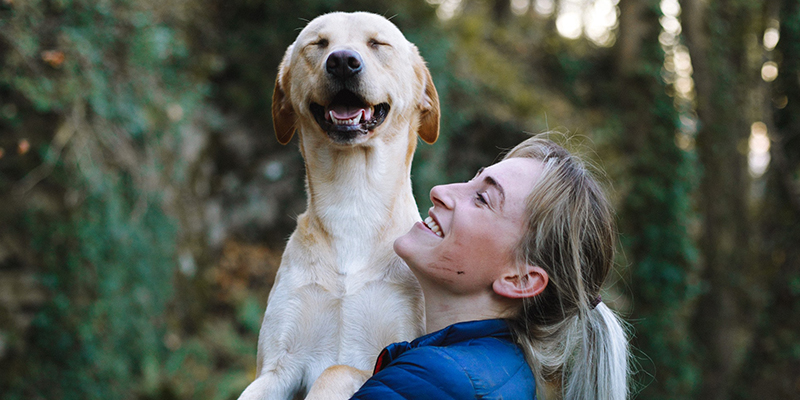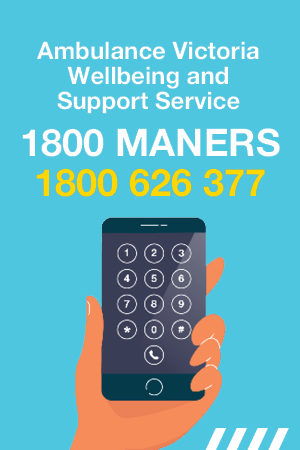Working in the ambulance service is different to other jobs and the work can impact on the loved ones of paramedics. The unique nature of the work that paramedics do can mean that they bring some of the emotional and mental effects home with them. When this happens, loved ones are often the first port of call for support.
While supporting your loved one, it is vitally important that you observe your own wellbeing and seek support if you are beginning to feel an impact. Looking after yourself, both your physical and emotional health, means that you will have the reserves needed to continue supporting your loved one.

Building healthy connections
Social connection gives us a sense of community and belonging, which is vitally important for our emotional health. Social interaction also helps to reduce feelings of stress and loneliness. If you are struggling, maintaining contact with your friends, and keeping regular social outings as part of your routine can be helpful.
However, some people may not have the personal support network they want or need. Forging new friendships as an adult can be tough. There are ways to meet new people and foster connection with likeminded people if this is the case, such as:
- Find friends based on common interests using a website or app (for example: Meet Up or Bumble Bffs)
- School, sporting/exercise, or community groups
- Hobby based groups (ie: gardening- ask at your local nursery, book club- check out the notices at your local library)
As an Ambulance Victoria family member, you are also a part of our community and as such you might like to participate in groups with people who understand all the challenges and rewards of ambulance work. Fortem Australia provide wellbeing activities for first responders and their families – see here for current events.

Relaxation
Relaxation can be one way to take care of yourself when you are feeling stressed. There is no one right way to relax. Everyone relaxes differently, so what works for you might not work for someone else and vice versa. It’s important to really think about what makes you relax and to even brainstorm strategies you can use when your stress picks up. That way, when your stress does increase, you know exactly what you can do to bring it back down.
Here are a few general ideas of what you and your family can consider for your relaxation list.
Proactively scheduling break times can be helpful in reducing the accumulation of stress. With your family, think about setting aside a break time for an activity that involves little demands, is stress free and helps everyone to check out. Example activities may include:
- Going for a walk
- Spending time at the park
- Playing a video game or boardgame
- Listening to music
- Doing a puzzle
- Reading a book
- Watching a favourite film/tv show
- Taking a breather to do nothing or calmly reflect on the day
Activate your senses in ways that help your body settle and calm down. Examples may include:
- A nice warm bath/shower
- Easy-listening music
- Soft-smelling lavender-scented candles
- Peaceful sounds of nature
- A weighted blanket
- Cuddling a pet
- Sweet homemade baked goods
- Star gazing
- A walk through the park
Paying extra attention to your senses during these activities can help get the most out of them. For example, on a mindful walk, you could pay attention to the feeling of the breeze, smell of the fresh air, and the vibrant colours of any trees and plants.
Breathing is a tool you can use at any time, in any place, to calm the body and quieten the mind. See below for a demonstration on how to practice the technique of diaphragmatic breathing.
Take a moment to reflect on all the things you are grateful for. It may be your physical or mental health, social support, the kindness of others, financial security, or even your accessibility to basic needs like shelter and food. In hard times, it can be difficult to be grateful, but widening your lens to include areas you aren’t struggling can provide a soothing sense of perspective.
If you can’t get away physically from your stress, you can always imagine yourself somewhere peaceful. Think up an image of a place you have been, somewhere you have always wanted to go, or a general place of peace and serenity.
Examples images may include:
- A tropical beach
- A lush woodland forest
- A majestic mountain range
- Swimming amongst the marine life
- Floating amongst the clouds
Once you have your image, simply close your eyes, immerse yourself in the details and focus on all the sights, sounds, and feelings that image brings up.
When we are stressed, our muscles become tense and tight. Try progressive muscle relaxation by tensing and relaxing the muscles (see the video below for a detailed demonstration). You could also do some light stretching, yoga, or book in for a professional massage.
Get in touch with your artistic side by drawing, colouring, playing an instrument, baking etc. Anything that you enjoy that absorbs your attention. If you can do a family project together, even better. Try not to focus on the finished product, and instead on the enjoyment of creation and connection.
There are many guided relaxation or mindfulness exercises readily available on the internet through Youtube, or through free phone apps such as Smiling Mind, Headspace, or Calm. They can be enjoyed as a peaceful exercise by yourself, or with your whole family, perhaps as part of your family wind down routine. See below for one recording you might like to use.

